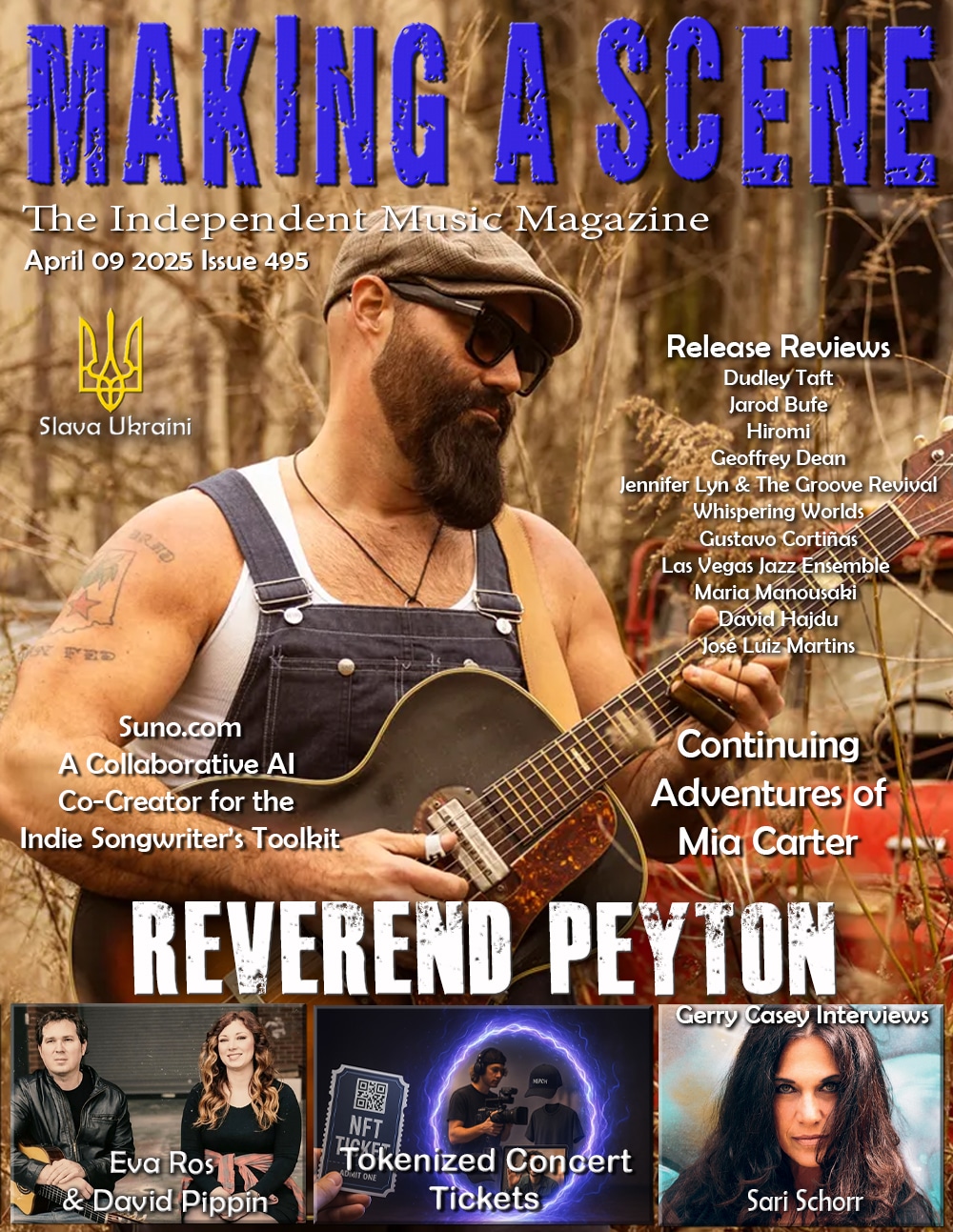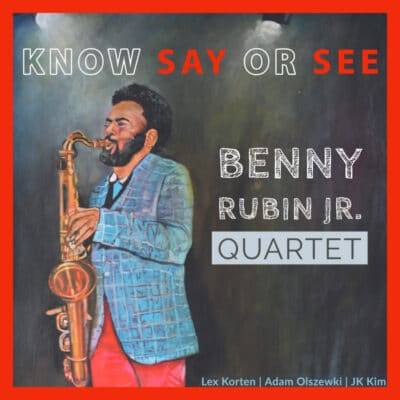Benny Rubin Jr. Quartet Know Say or See
Benny Rubin Jr. Quartet
Know Say or See
Self-released
This is the second release for emerging saxophonist Benny Rubin Jr., formerly from Flint, MI and now based in New York. Rubin leads a quarter, plays tenor and alto, and provided a mix of originals, some very edgy and free-form with a balance of standards that reveal he play in a restrained style as well. Rubin is accompanied by pianist Lex Korten, bassist Adam Olszewski, and the in-demand drummer JK Kim. Know Say or See follows his acclaimed debut What’s Next.
The first thing you’ll likely notice about Rubin is his deep, robust, tone of his tenor sax. He leads with the tune “Know,” playing accompanied before he is joined by bass and drums, engaging in a bluesy dialogue with bassist Olszewski, who reveals his own lyrical plucking skills on the upright bass. It’s a bit daring to begin the album with a slow rather than swinging tune, but Rubin shows some finesse as he builds up his solo, as if just laying the groundwork for more fiery passage that appear as early as the second track, “Say,” this time with the full quartet engaging in free jazz, especially pianist Korten. Then, Rubin gives us another aspect of his style, blowing melodically and maturely on Jimmy Van Heusen’s “Darn That Dream.”
Rubin turns to the alto for “NYC Urge,” an original based on Joe Henderson’s “inner Urge,” using a repeated phrase that his bandmates solo around. Horace Silver’s lesser know “Kiss Me Right” is that straight-ahead swinger that typically would be a leadoff track. This is an extended piece that allows plenty of room for Korten and Olszewski to make their own declarations before Rubin and Kim have that own heated conversation. Inevitably, the Flint born and raised Rubin issues “Flint Water Crisis.” Rubin conveys the requisite rage by taking his intense solos to the outer limits. At this point, seemingly exposed to the full range of his styles, another window opens as we hear the spirituality of Trane and Pharaoh with a few contemporary flourishes in “Down They Go” and especially in “Or See,” two more originals.
The title comes from a phrase “the things that people don’t want you to Know, Say, or See.” This varied, passionate set is provocative and sets a bright future for this young lion.
- Jim Hynes
Discover more from Making A Scene!
Subscribe to get the latest posts sent to your email.
















































